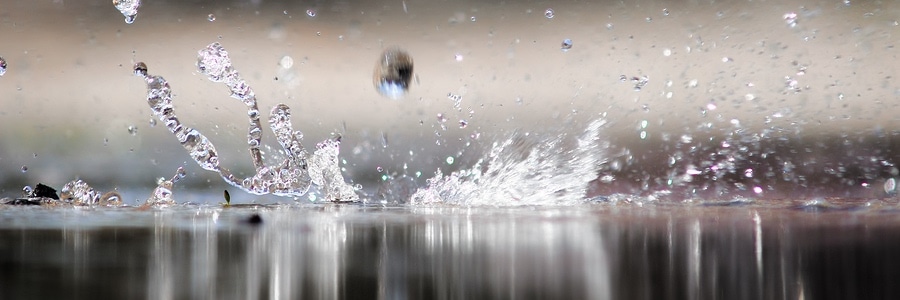Is it Illegal to Collect Rainwater in Texas?
Collecting precipitation from your gutters, also known as rainwater harvesting, can be a convenient way to gather and conserve water. But have you ever stopped to ask yourself: Is it illegal to collect rainwater in Texas?
In this short blog, find out the answer to just that, and learn how you just might be able to collect and conserve water at your Texas home.
Rainwater Harvesting in Texas: Is It Illegal?
The legality of collecting rainwater in Texas actually depends on the county you live in.
According to the National Conference of West Legislatures, Texas is among the few states who pay close attention to the issue of whether it’s illegal to collect rainwater and the rights to water in general. Texas has many laws in place for regulating the practice of harvesting rainwater, and leaves it up to each county to determine how it’s dealt with.
(You can read more about this here.)
That said, while Texas allows rain water harvesting in some counties, a few states in the western U.S. have traditionally outlawed rain harvesting altogether. The reasoning is that rainwater eventually makes its way into streams, rivers, and other water sources to which various individuals possess legal claims. In many cases, those claims go back generations.
Meanwhile, other states (and counties) simply place restrictions on rainwater harvesting by, for example, not allowing the drinking or distribution of rainwater. Additionally, some areas regulate collection systems, such as tanks, rain barrels, and cisterns. If rainwater is held in certain plastic containers, unsafe chemicals can get into the water and later seep into the ground, hence, the cause for concern.
Fun fact: When miners dug canals during the 1800s, they were entitled to all of the water ― and gold particles ― that flowed through them. It wasn’t until later that prospectors originated the idea that landowners can’t do what they want with the water on their premises.
What is Rainwater Harvesting?
Rainwater harvesting is the process of collecting rainwater through a harvesting or collection system, often using rain gutters, as well as barrels, buckets, or other containers to hold the water.
Dating back to ancient Rome, the idea of collecting rainwater began when wealthier households were designed with atriums that had shallow pools built into the floor. The pools were meant to collect rainwater to help fill the city’s water supply. Since then, there have been many adaptations on how to harvest rainwater all over the world.
In the United States, rainwater is usually harvested from building roofs and stored in tanks designed for holding it. You will usually find rainwater harvesting in states that don’t receive a lot of rainfall annually or that are in a state of drought. Having a rainwater harvesting system in place helps to supplement the water use throughout the dryer seasons of the year.
How Does Rainwater Harvesting Work?
Collecting rainwater can be as simple as routing a gutter into an empty barrel. For a more effective technique, however, you can install a more complex rain harvesting system. With a system like this, water trickles down off your roof and into your gutters, and then flows through a filter that takes out leaves, dirt, and other unwanted materials. Finally, water then goes into a tank with a filter of its own to be further cleaned.
Once the water has been filtered and moved to the tank, it’s ready for anytime use–be for showers, washing your car, washing your dishes in your kitchen sink. Some rain harvesting tanks are connected to sprinklers or hoses, as well, making water usage even easier.
The Benefits of Harvesting Rainwater
Collecting rainwater can help conserve resources and can keep energy costs down. In addition to catching rainwater, it also…
- Reduces stormwater runoff
- Uses simple and inexpensive ways to conserve water
- Good to use for gardening or watering lawn
- Less costs on resources
- Backup source for water emergencies
Is Rainwater Harvesting Illegal in Texas: A Recap
As mentioned, while many states actively prohibit rainwater collection, some states, including some parts of Texas, encourage it. In fact, many Texas homeowners can buy rain harvesting equipment free of sales tax, and it’s against the law for many homeowners’ associations (HOA’s) to prohibit rainwater collection.
If you live in San Antonio, Texas (like we do) you’ll be pleased to know that yes you can collect rainwater, free of charge. Although you’ll need a rain gutter system–including gutters, a downspout, and rain barrels–to do it. Fortunately, we’re here to help with the job! In addition to providing world-class gutter installations in San Antonio Texas, we’re happy (and proud) to provide our San Antonio customers with the tools and equipment they need to start collecting rainwater wherever they live.
Get Your San Antonio Rain Barrels from American Hill Country Gutters Today!
Live in San Antonio, Texas? Want to collect rainwater from your gutters?
Contact American Hill Country Gutters today to find out how we can help you start collecting rainwater (and save on water) with our professional rain gutter installation, and rain water harvesting services in San Antonio.
For more information about the benefits and ‘how to’ of rainwater harvesting in San Antonio, contact us today!







